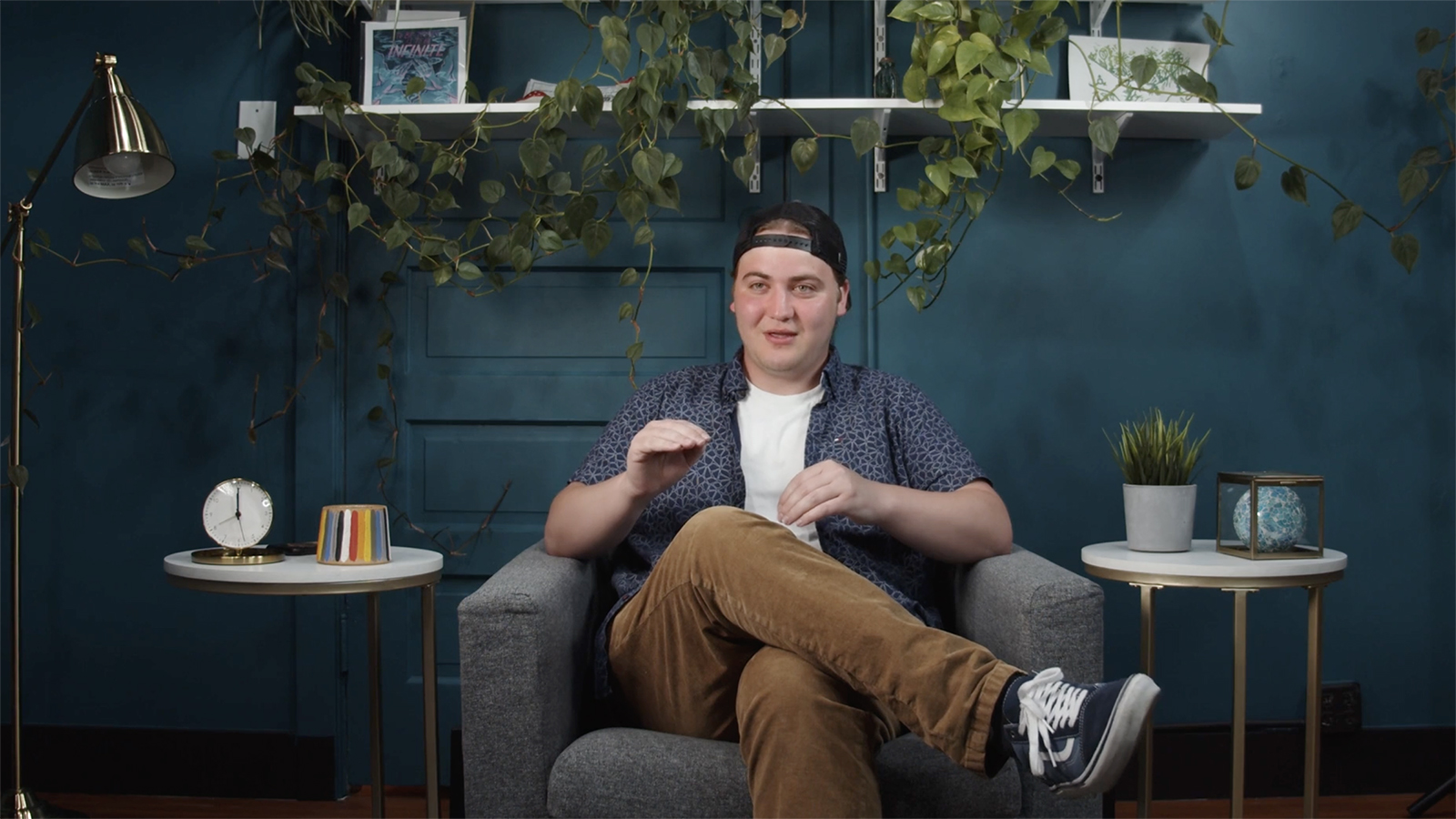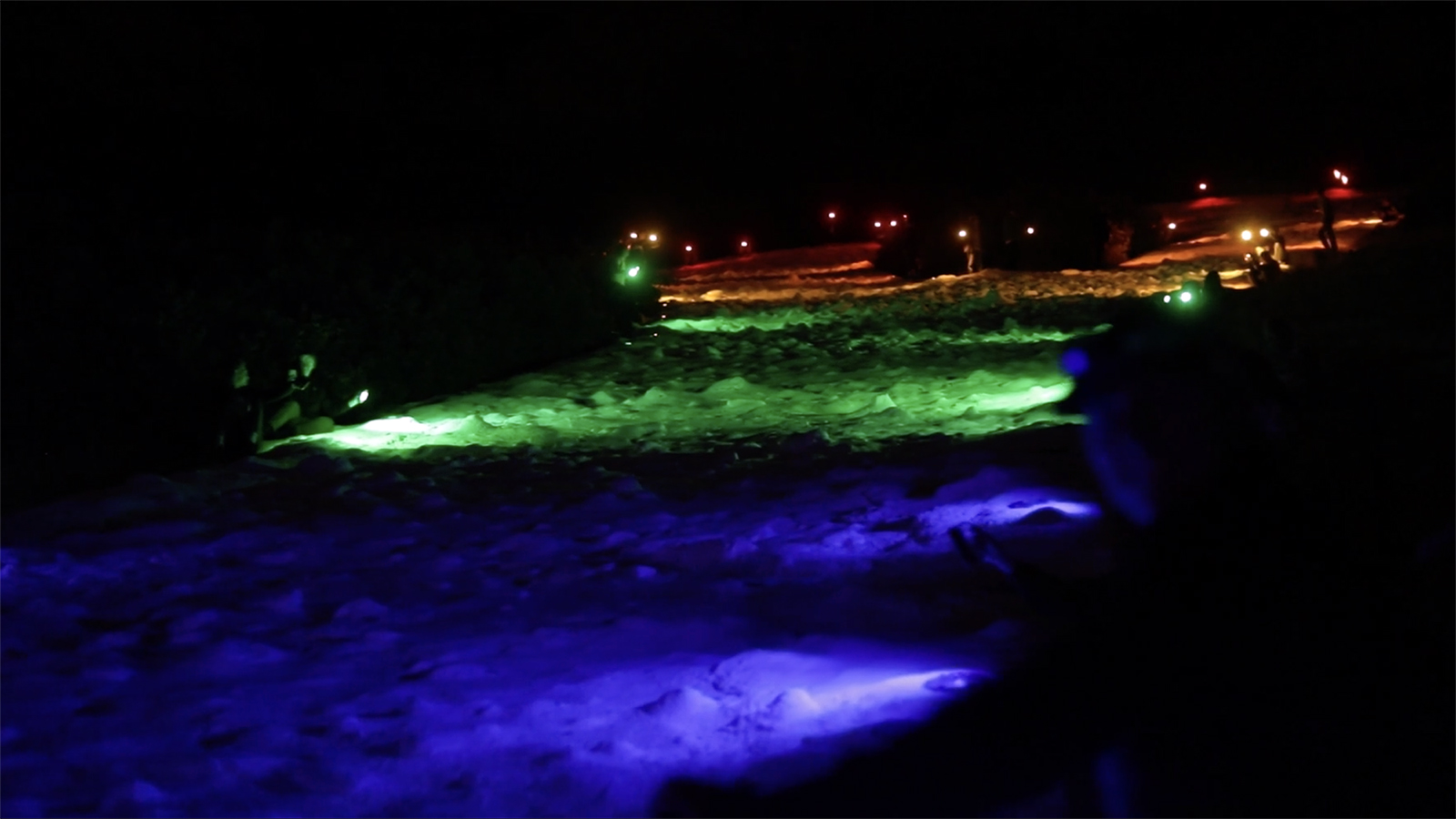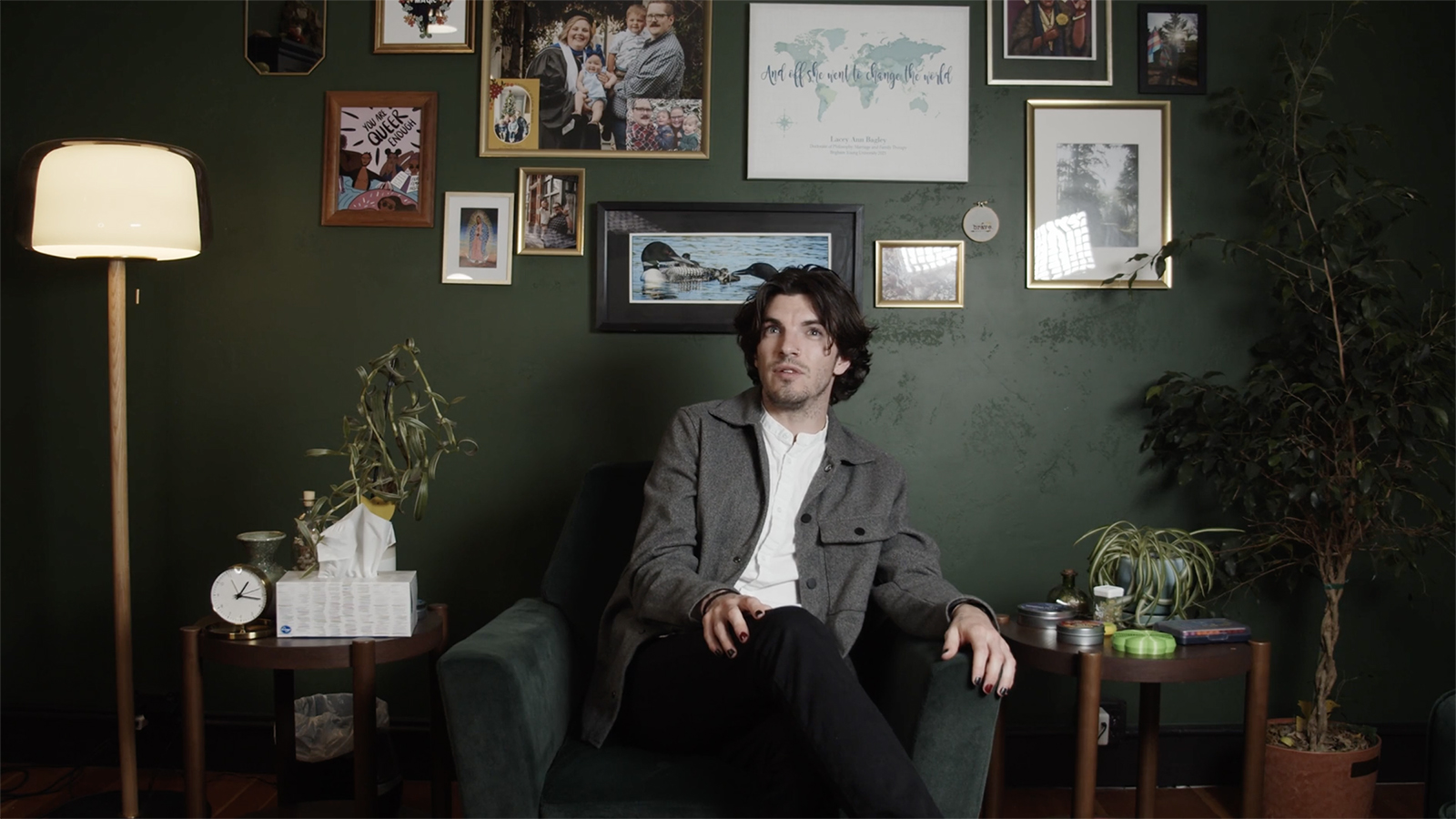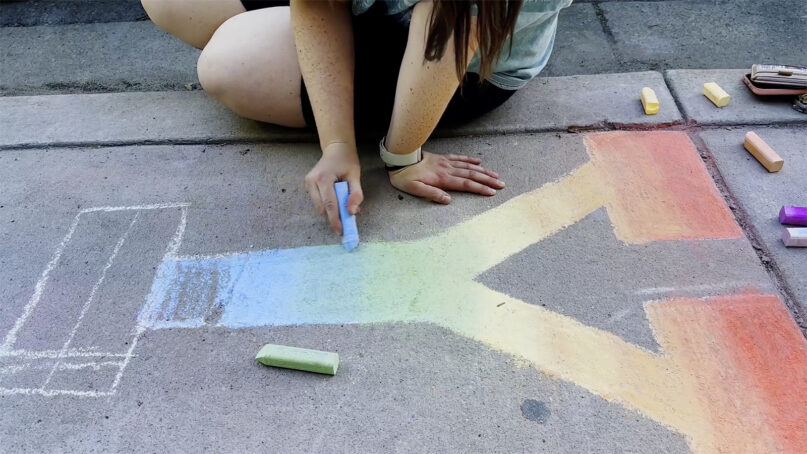(RNS) — When, in 2020, Brigham Young University’s Provo, Utah, campus erupted in rainbow-colored protests after the school quietly removed — then reaffirmed — its ban on “homosexual behavior,” David Sant was a closeted queer BYU student afraid to join the fray.
But now, as the director of the new documentary “A Long Way From Heaven,” Sant is spotlighting BYU’s treatment of LGBTQ students who, like him, felt pressured to stifle parts of their identity at the flagship school of The Church of Jesus Christ of Latter-day Saints.
Known as much for its rigorous academics as it is for its honor code, which upholds LDS prohibitions on everything from tea drinking to premarital sexual activity, BYU also bans “same-sex romantic behavior,” which means LGBTQ students are often cautioned to tread lightly: Hand-holding alone can result in discipline.
In this atmosphere, Sant began developing his documentary in secret a few months after student LGBTQ activists and allies made national headlines for lighting up the iconic “Y” overlooking BYU’s campus in rainbow colors. Earlier that year, the Church Educational System administrators who oversee BYU’s campuses stated that while the ban on homosexual behavior was no longer explicitly in the honor code, “same-sex romantic behavior” was still “not compatible” with the code’s principles.
Many of his subjects risked their degrees to participate in the film, said Sant, 27, who had already graduated by the time he began the project. “A lot of people risking their relationships with their families. … More than one member of BYU’s faculty and administration are scared of being fired because of their participation.”

“A Long Way From Heaven” director David Sant speaks in the documentary. (Image courtesy of “A Long Way From Heaven”)
This week, after more than three years, the secrecy is officially over. More than 500 people are expected to attend the film’s sold-out premiere Friday (March 15) at a theater 30 minutes from campus.
“At BYU we want all our students, including our LGBTQ students, to feel both the love of the Savior and the joy associated with living His commandments as part of a covenant-keeping community,” a spokesperson for BYU told Religion News Service via email. “We believe that we have a shared primary identity as sons and daughters of God. We welcome LGBTQ students and are grateful for all those who choose BYU because of its environment of covenant belonging.”
Sant said the idea for the film came after his longtime friend Tayler Pace, who attended Utah Valley University but had friends at BYU, invited him to film the second rainbow lighting of the “Y” that September. At first, the friends planned to use the footage in a short promo video.
“We both watched it through, and we were like, this is more than a five-minute story. And it’s snowballed from there,” said Sant, who, though officially an LDS member, described himself as “a person who would love to be Mormon, but can’t find a way in.”

Lighting the iconic “Y” in rainbow colors on Y Mountain overlooking Brigham Young University’s campus in Provo, Utah, in 2021, is highlighted in the documentary “A Long Way From Heaven.” (Image courtesy of “A Long Way From Heaven”)
Sant and Pace, who became the documentary’s producer, began incorporating other stories, like that of Matt Easton, a BYU student who came out as gay in his 2019 valedictorian speech, and Jillian Orr, who sported a rainbow flag sewn inside her graduation gown in a viral 2022 video. They interwove these with queer students’ accounts of coming out when the honor code was briefly changed, only to be told weeks later that the ban on homosexual behavior was still in effect.
The film also tells of LGBTQ students and allies who haven’t received national attention — a queer student who quit the lacrosse team after a coach threatened to report their relationship to administrators, or the former BYU counselor who was part of an “underground railroad” that connected LGBTQ students to resources and support.
Though critical of BYU, the documentary features students who enjoyed their time at the university, which makes the exclusion they experienced all the more complex. Pace and Sant insist that the film is neither anti-BYU nor anti-LDS. “The goal of this film is to shed light on what queer students have gone through for decades in hopes that we can do better,” said Pace.

Tayler Pace speaks in the documentary “A Long Way From Heaven.” (Image courtesy of “A Long Way From Heaven”)
Those past students’ painful experiences include the electroshock therapies administered to gay students in previous decades. The documentary also points to the prevalence of suicidal ideation among BYU’s LGBTQ population. Sant estimated that, per his research, at least 50 queer students have committed suicide in the university’s history.
Sant said the weight of the project came into focus in August 2021, after Elder Jeffrey Holland spoke of endorsing metaphorical “musket fire” to “defend the faith” in a speech where he critiqued those questioning the church’s doctrine on marriage and same-sex attraction.
“It became less about just how cool lighting the ‘Y’ was, and more about how people are dying …and people are doing nothing about it,” said Sant.
The stories in the documentary hit close to home for Jesse Gibbons, the film’s director of photography, who joined the project while a BYU film student. While working on the film, Gibbons, who now identifies as gay and nonbinary, started coming to terms with their sexuality and, by extension, with their struggles regarding LDS teachings.
When Gibbons shared their doubts about church doctrine, their bishop declined to provide the annual “ecclesiastical endorsement” required of all BYU students, leading to their expulsion in the spring of 2023.
“Especially after being kicked out, I feel like whenever I got to work on the documentary, I was engaged in something that was making it still worth it, that whole process,” Gibbons told RNS. “It has helped me to feel like the process I went through has led to something.”
In December 2021, BYU banned any form of demonstrations on the “Y,” and in March 2022 it fenced in the “Y.” In August 2023, BYU officially restored language prohibiting “same-sex romantic behavior” back to the honor code.
“I get discouraged quite often about the future of BYU. Is it ever going to change? Is it ever going to get better? Some days, I feel like, no, it never is,” said Bradley Talbot, the BYU alumnus who founded Color the Campus, the group behind the rainbow “Y” lightings. “But that doesn’t change my mission or my focus. Because what’s also never going to change is queer students existing at BYU. They need to feel like they are not alone.”
For Talbot, who appears in the documentary, one of its main takeaways is the resilience of BYU’s LGBTQ community, seen in the continuation of the rainbow days Talbot originated while a student, Pride Nights held by students off campus and the three groups for queer BYU students or alumni — the Raynbow Collective, the Out Foundation and Understanding Sexuality, Gender & Allyship.
The momentum behind BYU’s LGBTQ community is also seen in the grassroots support that raised the $10,000 paid to professionals, including animators, a colorist and a sound engineer. The rest of the work was done by volunteers.
“I hope this film changes minds. I hope it causes people to question how things are at BYU, in Utah, maybe even the LDS church. I hope it’s one step closer to achieving a more equitable world,” said Pace. “A better future for queer kids exists. We just gotta believe in that enough to make moves toward the future.”





